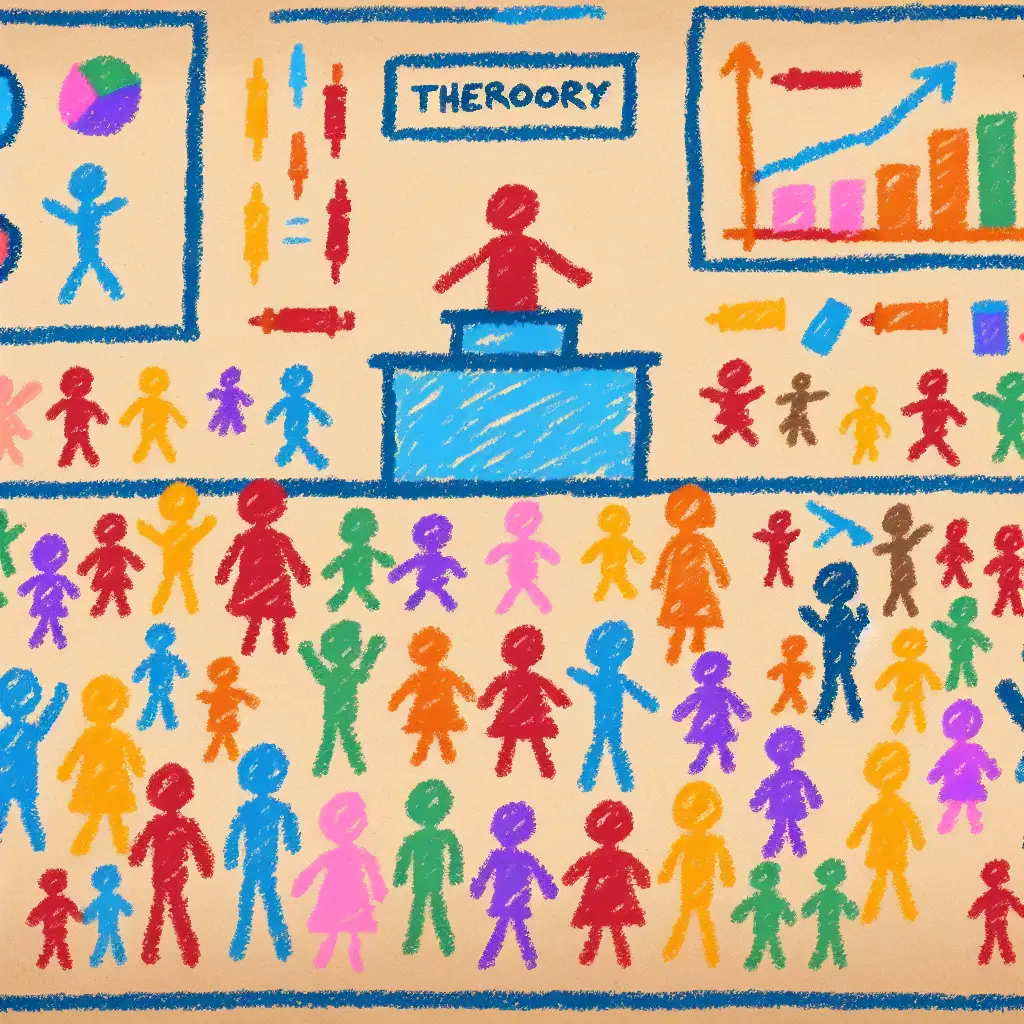The testosterone theory of politics

Explain Like I'm 5
Imagine if all the leaders in the playground decided who gets to use the swings and slides based on how loud they can yell or how fast they can run, instead of taking turns or listening to everyone's ideas. The "testosterone theory of politics" is kind of like that but for grown-ups. It's the idea that in politics, the people who are more aggressive and bold (qualities often linked to a hormone called testosterone) might get more attention and power. This doesn't mean they are better leaders, just like the loudest kid in the playground isn’t always the fairest one!
Explain Like I'm 10
So, you know how sometimes in movies, the characters who are really bold and tough seem to take charge and make all the decisions? Well, some people think that happens in real life too, especially in politics. The "testosterone theory of politics" suggests that politicians who show traits like being very confident, daring, or even a bit pushy, often get more notice. These traits are sometimes linked to testosterone, which is a chemical in our bodies that can influence how bold or aggressive someone feels. The idea here isn't that testosterone actually decides who should be a leader, but rather that the qualities it boosts might help some people in getting into leadership roles.
Explain Like I'm 15
The "testosterone theory of politics" is an interesting lens through which to view political dynamics. It posits that traits typically associated with higher levels of testosterone, such as aggression, risk-taking, and overconfidence, can influence political leadership and outcomes. Essentially, politicians who display these characteristics might be more likely to gain prominence and influence, regardless of whether those traits actually result in good leadership.
Think about it like this: in a competitive environment, such as an election, those who appear more decisive and assertive might be perceived as stronger leaders. This perception can play a big role in who voters gravitate towards, especially in times of uncertainty or crisis when people often look for leaders who project strength and confidence. However, this doesn't necessarily mean that these traits lead to effective governance; sometimes, they might even result in rash or unwise decisions.
In broader terms, this theory could help explain why certain types of leaders rise to power and why political discourse sometimes leans toward aggressive and polarizing rhetoric. It's important to critically assess whether the traits that help leaders get elected also benefit them in governing effectively, or if they simply cater to our most basic instincts for strong, dominant leadership.
Want to read the original story?
View Original Source